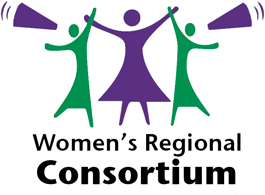The visibility of the Maternal Advocacy & Support Project ( Mas) helps to reduce stigma in maternal mental health. There has been a lack of statutory and community support services specific to maternal mental health in Northern Ireland. This is improving with the set up of perinatal mental health specialist teams for women experiencing a severe perinatal mental health problem. However, community funded peer support is also essential for women who are mild/ moderate and for women who have been discharged from the specialist service after one year. Supporting women to share experiences in a non- judgmental space provides acceptance and a feeling of not being alone. Women attending Mas have reported an improvement in their emotional wellbeing and many have expressed a sense of belonging to the Mas group and wider project.
The visibility of maternal mental health peer support helps to reduce barriers to seeking help and indicates that it is okay to talk about your mental health. The additional support available within the women’s centre also provides progression routes into other wellbeing courses, family support, accredited learning and complimentary therapies.
The lived experience and advocacy aspect of the project provides women with the opportunity to be heard and to tell their stories. We continue our campaign for a mother and baby unit in Northern Ireland. Women on the project are passionate about creating this change so that mums who are severely unwell and need hospital admission aren’t forced to be separated from their babies. We know that the health service is under extreme pressure but we believe that this is an essential women’s healthcare priority. The women have also developed a wishlist for change and designed the Mas Matter flyer for healthcare professionals.
The Maternal Advocacy and Support Project has been even more essential during the covid 19 pandemic when women experienced increased isolation and had limited access to GP and health visitor support. Research by the maternal mental health alliance found that the pandemic had disproportionately impacted women and had posed mental health challenges for women in pregnancy and early motherhood.
The women’s centres have always provided support, acceptance and opportunities for women in communities. The necessity of this support came to a different level with increasing levels of societal anxiety and other social supports closed off as lock- downs reduced access to family and friend support for new mums. The additional stress of a lack of social housing has also been a prevalent issue raised by women across the project, impacting further on mental health. As the restrictions have been relaxed, new mums are faced with the cost of living crisis. Many Mas project participants have expressed concern about not having enough to manage and having a heat or eat dilemma. It is important to acknowledge the impact that poverty and financial concerns can have on mental health as highlighted by the Mental Health Foundation in their report ‘Mental Health and the Cost of Living Crisis: another pandemic in the making?’ One of the recommendations is that funding is provided for community social networks that are likely to help, reinforcing the need for long- term statutory funding for the Mas project.
Women attending Mas have been able to access support, receive lunch, make friends and benefit from a wide range of wellbeing workshops including crafts, life- coaching, mindfulness. Aware NI, our project partner have also delivered Mood Matters, Living Life to the Full and Mindfulness across the 8 centres. The project is currently developing the Mas group leader programme as we train women to deliver peer support groups across the centres.
The Mas project is an essential peer support, advocacy and campaigns project that highlights women’s lived experience with the purpose of improving services in the future. Peer support, connection, hope, opportunities and training all contribute to good health and wellbeing. Mas is a project that values and is shaped, guided, led by women with lived experience and sends out the message irrefutably that ‘Mas Matter’
By Clare Anderson | MAS Project Coordinator, WRDA

